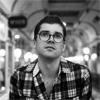Benjamin Madden

Benjamin Madden is a scholar of modernist literature, educated at the Universities of Adelaide and York. His work has appeared in the Times Literary Supplement and other outlets. He is the former editor of Modernism/modernity, and presently teaches literature at the University of Adelaide.
Richard Holbrooke was a United States diplomat whose career began during the Vietnam War and ended during the one in Afghanistan, and whose life, according to George Packer, spanned the ‘American century’. He was an Assistant Secretary of State in the Carter and Clinton administrations, and President Obama’s Special Representative for Afghanistan and Pakistan until his sudden death in 2010. ... (read more)
For a book announcing ‘the greatest story seldom told’ – that is, the triumph of the Enlightenment and its ‘stirring, inspiring, noble’ ideals – Steven Pinker’s Enlightenment Now: The case for reason, science, humanism and progress frequently hits an incongruously sour note. Since The Better Angels of our Nature: Why violence has declined (2011), Pinker has been at pains to assure us ... (read more)
Northrop Frye wrote that ‘No kind of book is easier to attack than an anthology’, as Stephen Burt reminds us in the introduction to The Poem Is You: 60 contemporary American poems and how to read them. Frye’s comment was occasioned by an anthology of poems from his native Canada, but in recent years perhaps no national literature has borne out the truth of it more than that of the United Sta ... (read more)
If there is a single event that marks the maturity of a new field of study, it may well be the appearance of a sprawling monograph from a trade publisher. Empire of Things: How we became a world of consumers, from the fifteenth century to the twenty-first by Frank Trentmann, Professor of History at Birkbeck University College of London, announces the arrival of consumption history in lavish style. ... (read more)
For fifty years after his death, the works of the most influential English-language poet of the twentieth century were unavailable in a scholarly edition. Moreover, Collected Poems, 1909–1962, arranged by T.S. Eliot himself and published in 1963, contained a number of widely recognised textual errors. The publication of The Poems of T.S. Eliot edited by Christopher Ricks and Jim McCue, brings th ... (read more)
